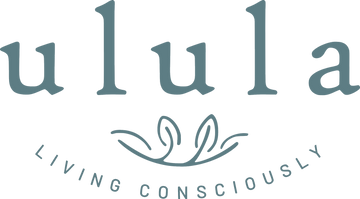Signs Your Baby May Be Ready For Weaning
During the first six months of life, breast milk or infant formula milk provides a baby with all of the nourishment needed for growth and development. However as each infant is different, around 6 months is the time most babies are ready to try other foods. It is a general rule to introduce solid foods in the form of smooth purees when your baby is 6 months or older.
The Department of Health recommends that parents should not wean babies before the age of 6 months. This is partly because a baby's digestive system may not be fully developed before this age and also because the risk of a child developing an allergy is said to be greater if solids are introduced before six months. Many parents tell me that they feel this advice is too rigid and that their babies are ready for weaning earlier than 6 months. While introducing solids is possible from about 4 or 5 months, weaning should never be attempted before 4 months, as a baby's developing digestive system simply cannot cope with the demands made of it.
Similarly, a number of parents tell me that their baby was not ready for weaning until after 6 months, and that is fine too. My experience is that parents should follow their parental intuition when thinking about when to start weaning their baby. Consider the list of possible signs below and observe your baby - you're the person who knows your baby best, so trust yourself. If there is a family history of allergies, eczema, asthma or hayfever then obviously exclusive breastfeeding or feeding baby milks or formulas would be sensible for the first six months, if at all possible.
The NHS advise that the following may be signs that your baby is ready to start his or her first tentative steps in eating solids alongside breast milk or formula (it is very rare for these signs to appear together before your baby is six months old):
- they can stay in a sitting position and hold their head steady.
- they can co-ordinate their eyes, hands and mouth so they can look at the food, pick it up and put it in their mouth, all by themselves.
- they can swallow food. Babies who are not ready will push their food back out with their tongue, so they get more round their face than they do in their mouths.
Some signs that can be mistaken for a baby being ready for solid foods:
- chewing fists
- waking in the night when they have previously slept through
- wanting extra milk feeds
These are normal behaviours and not necessarily a sign of hunger or being ready to start solid food. Starting solid foods won't make them any more likely to sleep through the night. Extra feeds are usually enough until they're ready for other food.
Weaning Your Baby Before Six Months
If you decide to wean at any time before six months, there are some foods that should be avoided as these may cause allergies or make your baby ill. These include wheat-based foods and other foods containing gluten (e.g. bread, rusks, some breakfast cereals), eggs, fish, shellfish, nuts, seeds and soft and unpasteurised cheeses. Ask a trusted professional for advice, especially if your baby was premature.


